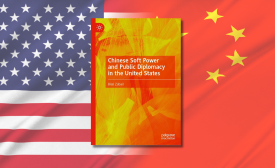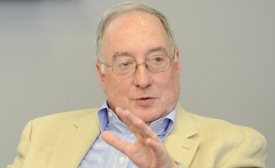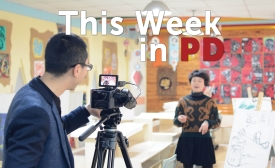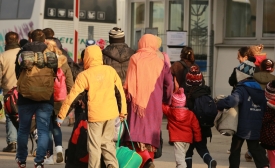digital media

The author Umme Laila explores how China uses soft power and public diplomacy to reshape its global image.

Two Fulbright scholars share their experiences abroad during the COVID-19 pandemic.
Watch the author discuss the online recruiting tactics of terrorists and more in his new book As Terrorism Evolves: Media, Religion, and Governance.

USC professor and prolific author on his new book, As Terrorism Evolves.

Stories explored television broadcasts and film festivals to strengthen international relationships.
Between Twitter and FaceTime, Facebook and Vine, it’s easier than ever for world leaders to communicate virtually. But Marcus Holmes, assistant professor of government at William & Mary, believes that might not always be the best option. [...] As important as face-to-face diplomacy is, there’s growing evidence that also suggests politicians shouldn’t delete their Twitter accounts just yet. Holmes and his team in the Political Psychology and International Relations lab also research the usefulness of digital diplomacy[.]
International Medical Corps, established in 1984, and where I currently work, is a global, humanitarian, nonprofit organization dedicated to saving lives through health care training and relief. In order to spread awareness about the Syrian refugee crisis, International Medical Corps went one step further by using visual storytelling to provide a voice for refugees. “The Things We Carry” campaign, launched in March 2017 by International Medical Corps and the Conrad N. Hilton Foundation is an effort to keep public attention on the ongoing crisis in Syria.

Laurence Desroches discusses a new digital storytelling campaign designed to bring attention to Syrian refugees.







